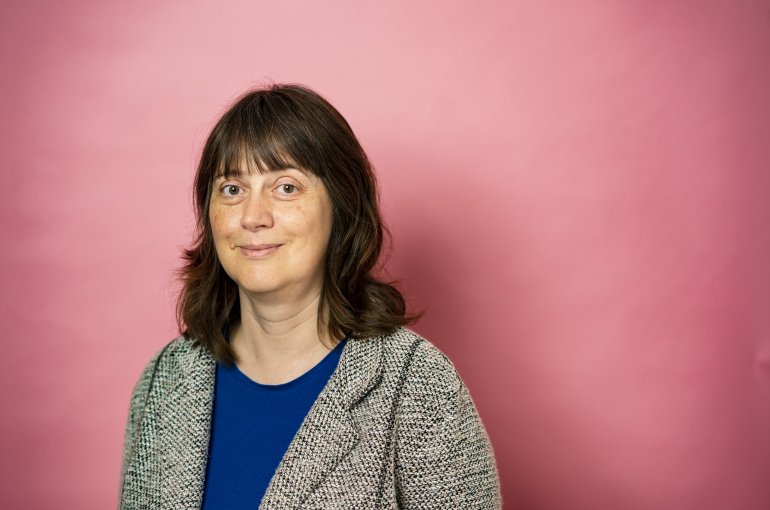Judith Masthoff appointed Professor of Interaction Technology

What is the best way for a computer program to convince you to stop smoking or to get more exercise? Arguments that work for one person, may actually be counterproductive for another. Judith Masthoff, who was appointed as Professor of Interaction Technology in February 2018, works on computer systems that automatically adapt to the user. “My work actually deals with the junction where Interaction Technology meets Artificial Intelligence”, Masthoff explains. “I not only study how people deal with a computer system; I also want to ensure that the system adapts automatically to the user.”
One of the applications for such a system would be a digital teacher, which could adapt its teaching method to the student. But such a system could also be applied to behavioural change: an app that helps you conserve energy or that encourages you to get around by bicycle. In order to appeal to the user in the right way, the system would build a user model.
Masthoff: “Some people are more sensitive to an authority argument, such as a doctor’s recommendation, but other people instinctively rebel against that, so such a strategy would have the opposite effect. In that case, it would be better to use a different type of argument, such as: you can save this amount of money by stopping smoking, or by taking shorter showers. Or perhaps a social argument: last month you used so much more or less energy than your neighbours.”
Playlist in the gym
Another application that Masthoff is working on, is recommendation systems for groups. “Say you and a group of friends want to decide where to eat. One likes Asian food, another is vegetarian, and a third can’t eat gluten. So what’s the best restaurant for you all?” Masthoff is also interested in sequences of these kinds of decisions: if you go out to eat with the same group of people again, what would then be the ideal restaurant? “A system like that has plenty of applications. Think of the music in the gym. How can you create a playlist of songs in an order that will keep everyone in the gym happy?”
Experimental Computer Science
In order to test her research, Masthoff regularly conducts user studies. “Because of that, people sometimes call my field ‘experimental computer science’. It’s actually fairly close to social psychology. So I’m really looking forward to working together with the colleagues from the Faculty of Social Sciences.” Masthoff’s research into behavioural change will allow her to collaborate within a variety of strategic themes and focus areas, including more sustainable behaviour (Pathways to Sustainability), mental health (Dynamics of Youth) and serious games (Game Research).

